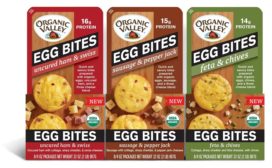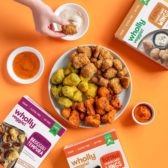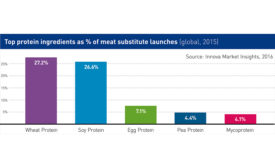Home » vegetarian
Articles Tagged with ''vegetarian''
Plant-based patty is now available in more than 8,000 retail outlets nationwide, a 50x increase in less than six months.
Read More
Report unveils sustainability initiatives in today’s meat industry
The report finds consumers are becoming conscious of the effects their diet has on the environment.
November 21, 2019
Study reveals impact of acceptance of cultured meat
The study revealed that 64.6% of participants were probably or definitely willing to try cultured meat, and only 18.4% were probably or definitely not willing to try cultured meat, whilst 16.9% were unsure.
July 17, 2019
Study says flexitarian diets could be most beneficial to health
Vegan diets are healthy with the appropriate selection of foods that adequately meet recommended nutritional requirements.
February 21, 2019
Research reveals many vegans, vegetarians dissatisfied with product options
The survey also suggests that a large number of consumers are planning major changes to their diets over the coming year.
July 30, 2018
Study shows Baby Boomers look beyond meat-forward dishes
Baby Boomers rarely follow special diets like low-carb, Atkins, Paleo, etc., but are looking for better-for-you attributes in their food.
July 26, 2018
Data shows rise in vegetarian claims
The trend toward reducing meat intake has led to the emergence of new opportunities to target vegans, vegetarians, non-meat eaters and non-red-meat eaters.
July 8, 2016
Elevate your expertise in refrigerated and frozen foods with unparalleled insights and connections.
Get the latest industry updates tailored your way.
JOIN TODAY!Copyright ©2025. All Rights Reserved BNP Media.
Design, CMS, Hosting & Web Development :: ePublishing







